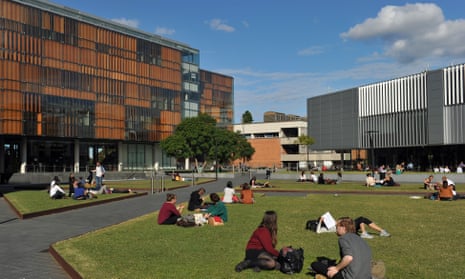Extract from The Guardian

In his new book, Wizards of Oz, Brett Mason chronicles two Australians who changed the course of world history through separate discoveries in a 100-day period in 1940.
Mark Oliphant’s lab miniaturised radar and realised that an atomic bomb was possible. Howard Florey distilled penicillin and showed it to be a miracle cure against infection. Oliphant’s discoveries definitively changed the course of the second world war for the allies. Florey’s saved countless lives during the war and is the single most important advance in medical history, leading to the average human life being 23 years longer than in the year of his discovery.
These incredible discoveries were the result of curiosity-driven research undertaken inside universities. The importance of technology on Australia’s future was not lost on our leaders at the conclusion of the war, and they enlisted Oliphant and Florey to help set up the Australian National University in 1946.
A prosperous Australia needs a highly educated population; it needs ground-breaking research and an ecosystem where government, industry and academia work together to propel people and ideas towards a common societal good.
A starting point is allowing every Australian student access to the education they want. While our Hecs/Help system provides broad access to university, the support for students from moderate or disadvantaged backgrounds is so low that most students have no choice but to go to the university closest to home, not the one that best caters for their skills and interests. Many students need to work long hours to make ends meet, sacrificing the time they need to get the most out of their courses. We will not get equitable outcomes until we update the way we support students while they study.
Evidence shows students actually know what study programs are best for them. Rather than trying to force them to study certain subjects through a Byzantine fee structure, we must allow them to select subjects based on their interests by making course fees uniform. If the government wants to incentivise particular courses, then it should provide scholarships that help students pay their living costs while they study in these areas.
Around the world, but especially in Australia, governments are cutting curiosity-driven research in favour of research with a direct commercial application. This short-term thinking fails to understand that the innovations we need actually come from the giant pool of ideas generated by curiosity – what we in universities call basic research.
Sign up for our free morning newsletter and afternoon email to get your daily news roundup
From 1992 to 2020, Australia’s investment in basic research dropped from 40% of the government’s total spend to 19%. What’s more, we now rely on foreign income streams for much of this research. It is essential that basic research – as a public good with immense value both economically and strategically – remains appropriately funded by government. It is not at present.
This dramatic decline in funding has coincided with strict societal interest tests for research funding. For a few months earlier this year, a national interest test was put in place that meant the type of research I did to win a Nobel prize in physics was no longer fundable. While I understand that it is not immediately obvious that the field of astroparticle physics I work in is of any practical use, it has created the underpinning technology of your digital camera, wifi, internet, and the touch screen on your smartphone. These unplanned spillovers are the backbone of innovation.
While education minister Jason Clare has removed the worst bits of the national interest test, it unfortunately remains as a mothballed populist response to basic research, ready to be reactivated to the nation’s detriment at some politically expedient time in the future. The government should remove the national interest test for curiosity-driven research once and for all. Let’s instead focus our attention on making the most of our research, rather than trying to put it into a pre-determined box. That’s why I welcome the review into the Australian Research Council to make sure we will have a research system equal to the opportunities and challenges of the coming decades.
This is not to say the application of research is not important – it is essential. Translating the sea of knowledge from foundational research builds new gadgets, creates jobs, and solves the morass of challenges we face as a global community. But this work needs to go hand-in-hand with curiosity-driven research, not in place of it. Australia can be proud of its university system. But it needs a reboot. The University Accord process is a chance to make the scale of changes needed for the coming decades. We need a system that takes into account changes in demography, differences between regional centres and capital cities, and one that is rapidly responsive to our immigration and skill needs. It also needs to deliver the research that will drive productivity gains to keep us prosperous in a rapidly changing world.
Brian Schmidt is the vice-chancellor of the Australian National University and the 2011 Nobel laureate in physics
No comments:
Post a Comment